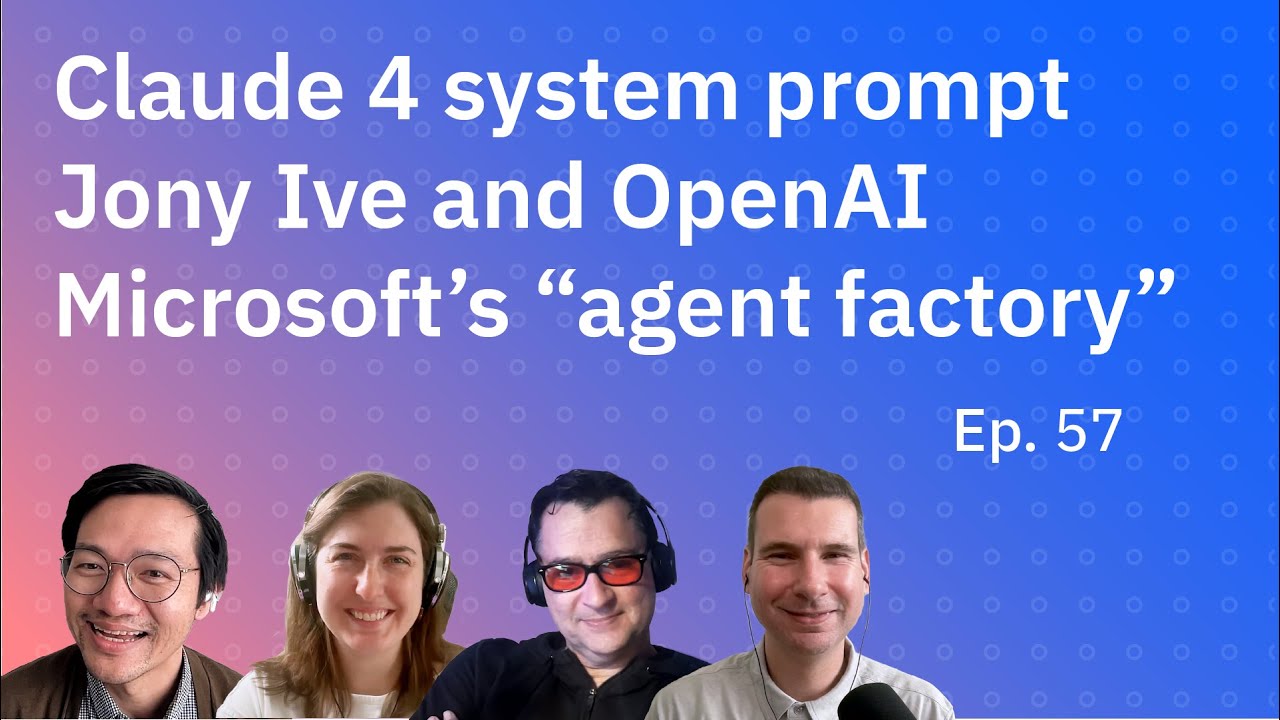The episode explores advancements in AI prompting, system prompts like Claude 4, and innovative approaches such as vibe coding, highlighting their potential to democratize and enhance AI development. It also discusses Jony Ive’s recent acquisition by OpenAI, the future of AI hardware, and Microsoft’s vision of customizable AI agents, emphasizing the importance of interoperability, trust, and human oversight in evolving AI ecosystems.
The podcast episode begins with a discussion on prompting skills among AI professionals, featuring guests Kate Soule, Chris, and Aaron Baughman. Each guest rates their prompting abilities on a scale from 1 to 10, with Kate giving herself an 8, Chris expressing uncertainty, and Aaron questioning the very concept of prompt engineering. The conversation sets the stage for a broader exploration of the current state of AI prompting, emphasizing the importance of understanding system prompts and how they influence model behavior.
The hosts then delve into the Claude 4 system prompt, which had leaked after its release. They analyze its length, transparency, and detailed guidance for the AI, noting how it instructs Claude to respond and handle sensitive topics. The discussion highlights the significance of such prompts as educational tools and how they can be adapted across different models. Kate and Chris emphasize the potential for prompts to serve as manuals or handbooks, guiding AI behavior in various scenarios, while Aaron raises concerns about the reliability of such long prompts and the risks of over-reliance on them.
Next, the episode explores the collaboration between Rick Rubin and Anthropic, focusing on Rubin’s approach to “vibe coding”—a creative, art-like method of working with AI. The hosts consider whether vibe coding could democratize AI development, allowing individuals with little technical background to produce meaningful results. They debate the artistic nature of coding, the importance of creativity in AI, and how vibe coding might enable more diverse and unconventional approaches to building AI systems, blending art and engineering in innovative ways.
The discussion then shifts to Jony Ive’s recent $6 billion acquisition of his startup, io, by OpenAI, and the potential future of AI hardware and device design. The guests speculate about the nature of the product—possibly a screenless AI device—and its implications for human-AI interaction. They consider the challenges of trust, privacy, and ecosystem integration, comparing it to existing efforts like the humane pin and Apple’s ecosystem. The conversation emphasizes the importance of hardware design, trust, and seamless integration within existing platforms to ensure the success of new AI devices.
Finally, the episode addresses the evolving landscape of AI agents, with insights from Jay Parikh of Microsoft. The hosts discuss Microsoft’s vision of enabling organizations to become “agent factories,” creating customizable, interoperable AI agents using standardized protocols. They explore the potential for a marketplace of agent skills, the decentralization of AI capabilities, and the importance of interoperability standards like MCP. The conversation concludes with optimism about the future of agents as modular, composable tools that can be tailored to specific tasks, while also acknowledging the ongoing need for human oversight and the challenges of orchestrating complex AI systems.
